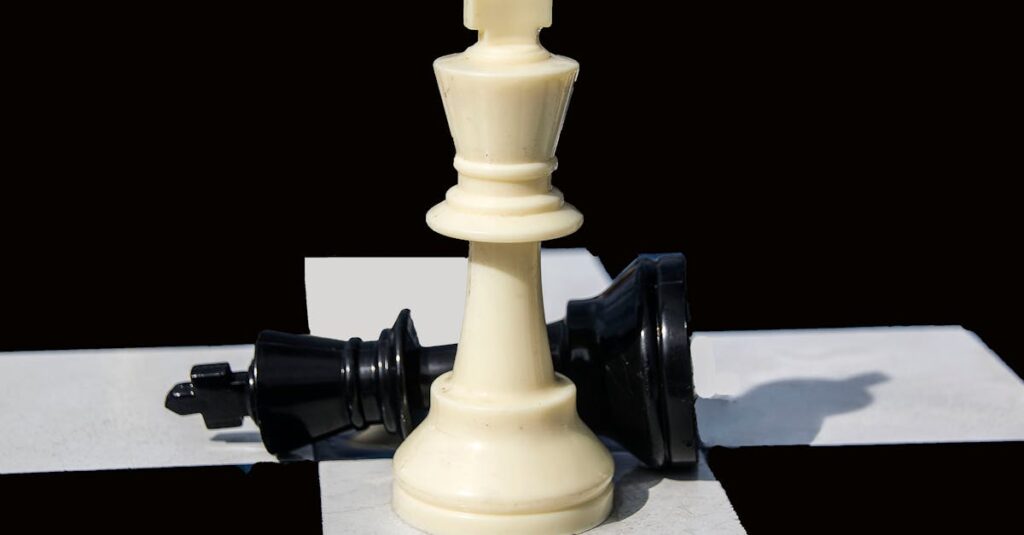
Introduction: The River Beneath the Dam
Close your eyes for a moment and picture this:
There’s a river inside you. Wild, clear, and endlessly inventive. It carves new paths without apology. It dances over rocks, shimmers under the moon, and carries seeds of ideas to fertile ground. This river is your creativity—your soul’s native language.
But somewhere along the way, you built a dam.
Stone by stone, you stacked of protection and expectations: “It’s not ready yet.” “What if they laugh?” “I need just one more edit.” Now the river fights to trickle through the cracks, and you’ve forgotten what it sounds like when it roars.
This isn’t a lecture about “good enough.” This is a love letter to the part of you that’s been holding its breath, waiting for permission to flow.
Let’s take apart the that dam, together.
1. The Trap of Perfectionism

Perfectionism wears many masks. For some, it’s the relentless editor who crosses out every third sentence. For others, it’s the ghost of a teacher who said, “Interesting idea, but stick to the rubric.”
But at its core, perfectionism is not a pursuit of excellence. It’s a fear of being truly seen.
Think of the last time you shelved a project because it didn’t match the acceptable “vision.” Or the way your chest tightened when sharing an idea, braced for critique. Where did that fear come from?
- Was it the seventh-grade art teacher who graded your self-portrait “C+”?
- The parent who praised your sister’s practicality but called your dreams “unrealistic”?
- The cultural script that equates vulnerability with weakness?
Perfectionism says, “If I control every outcome, I’ll never get hurt.” But here’s the truth it won’t admit: You cannot numb pain without numbing joy.
Every time you over-edit, overthink, or over-apologize for your work, you’re trading your wild, messy humanity for the illusion of safety. And the world loses a little more of your light.
Quit Stopping Yourself
Every time you over-edit your truth, you dilute its medicine.
Every time you postpone sharing your work, you starve the world of your perspective.
Every time you say, “I’ll wait until I’m an expert,” you deny the sacred power of your beginner’s mind—the same mind that sees solutions others call “naive” because they’ve forgotten how to wonder.
Visionaries don’t just fear criticism. They fear the weight of their own impact. To create boldly is to accept a terrifying truth: Your ideas will change people. They’ll unsettle the status quo. They’ll force loved ones to confront their own unlived lives. And yes, they’ll attract rejection—not because your work isn’t “good,” but because it’s a mirror.
But what’s the alternative? A half-lived life where you trade your wildfire ideas for embers that keep others warm but leave you cold? A existence where you become fluent in everyone’s language but your own?
You were not made to be safe. You were made to be alive.
The tragedy isn’t that perfectionism kills your dreams—it’s that it murders your wholeness. It convinces you to amputate the “too much” parts: your intensity, your quirks, your hunger for meaning. It asks you to kneel at the altar of “professionalism” while your soul withers in beige corridors.
But here’s the secret your fear doesn’t want you to know: Your “flaws” are portals.
- That idea that “isn’t scalable”? It’s a revolution waiting for its first follower.
- The project that feels “self-indulgent”? It’s someone’s survival guide.
- The art that “doesn’t fit your brand”? It’s a fractal of your becoming.
You’ve been taught to polish yourself into a monument. But monuments don’t breathe. They don’t evolve. They just gather dust.
The world doesn’t need another statue.
It needs your storm.
2. Ego vs. Soul — The Battle for Your Creativity

Let’s name the two voices in your head––not as enemies, but as old acquaintances. One clings to the shore, counting waves. The other beckons you to dive.
The Ego: Architect of the Familiar Prison
The ego speaks in the sterile glow of spreadsheets, its voice a metronome of “shoulds.” It thrives on binary thinking—success or failure, worthy or worthless, safe or ruined—and worships at the altar of certainty. It’s the part of you that rehearses conversations in the shower, scripting witticisms to avoid awkward silences. The part that deletes a vulnerable caption seven times before posting something “strategic.”
Its questions sound like shackles:
- “What if they think you’re arrogant?”
- “Why risk your reputation on an unproven idea?”
- “Who are you to disrupt the norm?”
The ego isn’t evil. It’s a survivalist—a medieval guard dog trained to keep you safe in a world that once punished divergence. It mistakes control for safety, polish for power, and likability for love. But here’s the tragedy: The ego’s “protection” is a life sentence. It trades your wild, untamed potential for a gilded cage of predictability.
The Soul: Keeper of Your Undomesticated Truth
The soul speaks in riddles and rhythms. You feel it in the goosebumps that rise when you hear a lyric that cracks your heart open. In the gut-lurch when you’re about to share an idea that terrifies you with its rightness. It doesn’t care about virality or vanity metrics. It cares about aliveness—the raw, unfiltered truth that makes your hands shake when you create something that matters.
Its questions sound like sunrise:
- “Does this make you feel free?”
- “What if ‘irrational’ is just another word for ‘magic’?”
- “Who are you not to honor this calling?”
The soul knows what the ego fears: True creation is an act of surrender. It requires trusting the “messy middle”—that fertile murk where ideas morph and meanings shift. Where a painting that starts as a grief ritual becomes a anthem for strangers. Where a “failed” experiment births a innovation. The soul doesn’t demand answers; it follows breadcrumbs of curiosity, even when they lead into the dark.
The Choice: Cower or Create
Your ego builds dams because it believes creativity is a limited resource—something to meter out, sanitize, and defend.
Your soul is the river—relentless, adaptive, carving canyons through bedrock.
You’ve been negotiating with a nervous system wired for a world that no longer exists. A world where fitting in meant survival. But you, visionary, were born for a different purpose: not to survive the world, but to remake it.
If you’d like to read more on how to build your self up to live a soul-driven life, then I highly read the self-concept series.
3. Letting the River Flow — Practices to Bypass the Inner Critic

How do you silence the ego’s alarm bells? You don’t. You thank them for their concern… and create anyway.
Try this:
1. Write an “Ugly First Draft” (And Fall in Love With It)
Set a timer for 10 minutes. Write, paint, or brainstorm without stopping. Let it be clunky, clichéd, or cringey. When the timer dings, place your hand over your heart and say: “Thank you for showing up. This is sacred.”
Why it works: You’re retraining your nervous system to associate creation with safety, not scrutiny.
2. Speak Your Idea Aloud Before It’s “Ready”
Share your half-baked concept with a trusted friend—not for feedback, but for witness. Say: “This is still tender. I just need you to hold space.”
Why it works: You break the habit of hiding until you’re “impeccable.” Progress over polish becomes your mantra.
3. Create a “Permission Slip” Ritual
Grab a sticky note. Write: “I permit myself to make something that…
- …bores my old teachers
- …confuses my family
- …delights my inner child
- …doesn’t scale, sell, or ‘make sense’”
Tape it to your mirror.
Why it works: You externalize the ego’s “rules” and laugh at their smallness.
4. Perfectionism is an End With No Beginning

Consider this:
- The Japanese art of kintsugi mends broken pottery with gold lacquer, honoring fractures as part of an object’s history. Born from 15th-century Zen philosophy, it rejects the idea that brokenness diminishes worth. Instead, it proclaims: “Damage is not an end—it’s the beginning of a new story.”
- A forest becomes fertile not despite fallen trees, but because of them. Decaying logs feed fungi that nourish saplings, creating what ecologists call “nurse logs”—nature’s reminder that what we perceive as “ruin” often incubates rebirth.
- Your favorite song likely has a vocal crack the artist fought to keep. Think of Janis Joplin’s rasp in Piece of My Heart, or the raw gasp in Jeff Buckley’s Hallelujah. These “flaws” weren’t oversights—they were acts of courage, proof that perfectionism murders the soul of art.
Imperfection isn’t failure—it’s a fingerprint of humanity. Neuroscience confirms this: A 2022 study in the Journal of Personality and Social Psychology found that people who display minor flaws are perceived as 23% more trustworthy and relatable than those who appear flawless. This “Pratfall Effect” reveals a paradox: Our quirks don’t push people away—they magnetize them.
Yet so many visionaries sterilize their work into blandness, scrubbing away the textures that make it theirs. That faint tremor in your voice during a podcast recording? It’s not a flaw—it’s a bridge. Someone out there will hear it and think, “Oh good, they’re human too.” That typo in your newsletter? It’s a hand reaching through the screen, whispering: “I’m learning alongside you.”
Here’s the deeper truth that we ignore: Perfectionism isn’t just exhausting—it’s lonely.
- A flawless painting intimidates. A canvas with visible brushstrokes invites you to touch it.
- A “perfect” leader feels distant. One who says “I don’t know, let’s figure this out” builds armies.
- A polished social media post fades. A caption with a typo and a laughing emoji (“Proofreaders, come at me!”) becomes a inside joke with your community.
And if you’re thinking, “But shouldn’t I strive for excellence?” Of course. Excellence is mastery in motion—a verb, not a trophy. But perfection? It’s a stillborn ideal. As author Brené Brown writes, “Perfectionism is a 20-ton shield we drag around, thinking it will protect us when it really prevents us from being seen.”
Worse yet: Perfectionism is the enemy of evolution. If you’re already “perfect,” there’s nowhere left to grow. No mysteries to chase. No edges to soften or sharpen. You become a museum piece—admired, perhaps, but frozen. Is that the legacy you want? A life preserved in amber, safe but stagnant?
The most visionary among us know this. Thomas Edison’s 1,000 “failed” lightbulb prototypes weren’t disasters—they were 1,000 conversations with possibility. Frida Kahlo didn’t hide her scars; she painted them into mythology. Every crack in your work isn’t a weakness—it’s a antenna, calling in those who need exactly what you’ve survived to create.
So let me ask you:
- What if your “messy” draft is the key someone needs to unlock their own voice?
- What if your vulnerability becomes permission for others to exhale?
- What if your willingness to be imperfect is the bravest legacy you’ll leave?
The world doesn’t need more immaculate facades.
5. The Courage to Be a Beginner — Again and Again

You’ll know you’re healing your perfectionism when:
- You post the reel even though your hair isn’t “done.”
- You send the proposal with a typo in page 3.
- You call yourself “a writer” before you’ve landed a byline.
Progress whispers: “What if I’m embarrassed?”
Courage answers: “What if I’m free?”
Remember: Mastery is just a series of beginnings. The photographer took 10,000 blurry shots before one went viral. The chef burned a hundred omelets before plating one that made someone cry.
Your “imperfect” act today is a love letter to your future self.
An Affirmation for the Perfectionism Recovery
Place your hands over your heart. Breathe deeply. Repeat aloud:
“I am not here to perform.
I am here to play.
I release the need to be flawless.
I choose to be fearless instead.
My worth is not earned—it is inherent.
My voice matters, even when it shakes.
I let the river flow.”
Your Invitation to Create Dangerously

The world doesn’t need more polished, predictable work. It needs your work—the kind that spills over the edges, stains the page, and leaves a lingering hum in the bones of those who experience it.
So let’s make a pact, you and I:
- We’ll stop waiting for “proof” we’re ready.
- We’ll worship the process more than the product.
- We’ll trust that our “messy” might be someone else’s medicine.
That dam you built? It wasn’t a life sentence. It was a lesson. And now, you know how to break it and why you have to break it.
Take the first stone out today.
P.S. If perfectionism has been your silent struggle, I’d love to hear: What’s one “imperfect” act you’ll gift yourself this week? Share below—your courage might spark someone else’s liberation.
